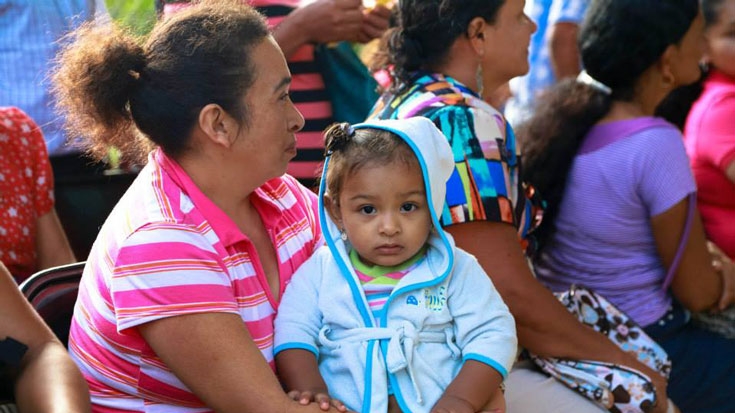Panama is one of the fastest growing economies in Latin America, but its growth has not been translated into poverty reduction or economic inclusion. Although between 1997 and 2003 real per capita gross domestic product (GDP) grew at 1.5 percent per year, poverty fell only by about a half a percentage point, from 37.3 to 36.8 percent. Nearly all (98.4 percent) of the communities in the indigenous areas live in poverty. In this context, a major challenge for Panama was to formulate and implement policies that would translate its solid growth performance into effective and sustainable poverty reduction.
Solution
The government of Panama launched the CCT program, Opportunities Network (Red de Oportunidades), to provide access to basic social services and improve the living standards of the poorest and indigenous groups. The program was part of the government’s efforts to foster a more comprehensive and coherent social protection strategy. The World Bank supported the program through the Social Protection Project. The objectives of the project were to (i) improve the management and operation of the CCT program to enhance its effectiveness in reaching the poorest and indigenous groups, (ii) provide beneficiaries with an incentive framework to increase their participation in the CCT program, which would boost their demand for education and maternal and infant health services, (iii) strengthen the supply of nutrition and child growth promotion interventions in the indigenous areas, and (iv) enhance government capacity to develop coherent and efficient social sector policies and interventions on the basis of evidence.
Results
The project supported the government’s efforts to improve the management of the Opportunities Network program, provide the beneficiary population with family services and program information, and provide health services to indigenous areas. The main achievements of the project are as follows:
- Coverage of 75,000 families, with more than 91 percent of children between 5 and 17 years of age enrolled in school.
- Establishment of a targeting mechanism that allowed the program to reach the poor in an objective and transparent way. More than 90 percent of beneficiaries are in the poorest 40 percent of the population (74.4 percent are in the poorest quintile)
- Provision of health services to a population previously excluded from vaccinations or health check-ups, due to their geographical or socio-economic conditions: 234,523 beneficiaries received PAISS+N health interventions (immunization and nutrition) in indigenous areas.
- Establishment of a network of social workers (promotores sociales) that allows for the provision of family support and close contact to address the needs of beneficiary households. The proportion of beneficiaries that have been informed about the program through a visit from a social worker reached 92 percent by October 2013.
Bank Group Contribution
The Bank provided financing of US$24 million to support the deployment and training of the network of social workers at the local level and the provision of health services by non-governmental organizations hired by the Ministry of Health. The Bank also provided technical assistance and consultancy services to develop the beneficiary roster, revise the proxy means test, and develop the management information system and define a strategy for the verification of co-responsibilities.
Partners
The Ministry of Social Development was the implementing agency for the Opportunities Network program, and the Ministry of Health was implementing agency of the expansion of health services to rural and indigenous areas. The program was co-financed by a loan from the Inter-American Development Bank.
Moving Forward
The new administration is working to develop further the Opportunities Network program and has maintained an active dialogue with the World Bank. As part of this dialogue, the government has requested a follow-up operation supporting a broader agenda to strengthen the targeting and coverage of social programs, and enhance the efficiency of the administration of social programs. This is in line with pending challenges related to the inclusion new families with children in the Opportunities Network, especially in the indigenous communities, and complementing cash transfers with additional social and productive services that promote social inclusion and help beneficiary families to escape poverty.
Beneficiaries
The main beneficiaries of the project included the poor and extreme poor households in the Opportunities Network program. These include around 25,000 families in the indigenous territories, 38,000 families in the rural areas and 11,000 families in the urban areas.
"It’s been helpful to me. For example, at the beginning of the school year, we always receive a payment. Then I always use that money for the school materials for the kids" Beneficiary mother from Chiriqui River, Comarca Ngäbe Buglé (indigenous territory), 2014.
